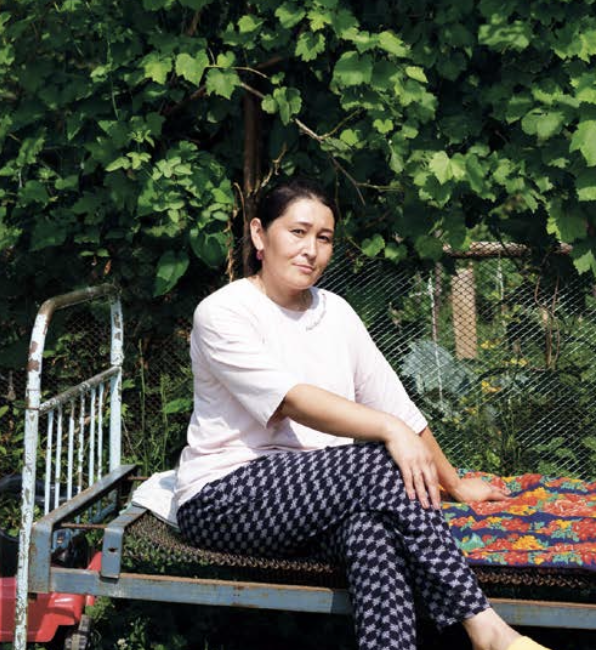CBT distributes benefits to households across a community. For example, though not all families will host homestays, some may act as guides or provide meals and other services to tourists. The narrative of Khurshida, a 39 year old woman living in Arslanbob, demonstrates how CBT provides local employment opportunities, revenue generation, procurement of goods and services – limiting the funds that leave a community.
With her husband’s support, Khurshida runs a shop and takes care of her four children, two of which were born with cerebral palsy. Khurshida studied to become a teacher but due to her children’s disability and their care needs she was compelled to stay at home. The household also gains “income from apples and nuts, and my husband is a beekeeper”. To sell their produce they opened a shop next to their house. During the busy tourist season, most of Khurshida’s customers are tourists that are sent to her by neighbouring CBT hosts. Khurshida spends most of her day caring for and homeschooling her children, attending to the shop when clients ring the bell and during busy periods. In her small shop tourists can find a variety of goods – food and drinks, cleaning materials, and also high quality organic honey from her husband’s beekeeping business. Khurshida added that her husband supported her a lot with the shop: “I didn’t have a chance to work, that’s why we sat together and discussed it. We supported each other and opened the store. He brings goods and I sell them. This is our family business”.
Khurshida shared that the government programmes for children with disabilities are not sufficient to meet their needs. Khurshida and her husbandwork a lot to meet their children’s healthcare and educational needs. This year her older children graduated from school, and she proudly showed photographs from the graduation ceremony. Khurshida and her husband support their children in realising their dreams: “My daughter is eighteen years old. She wants to be a photographer. She wants to have a corner where she can do photocopies or print photos.”
Her sister-in-law is Luiza Osmanova (page 50). She usually sends her guests to Khurshida for shopping, especially for local goods such as Arslanbob honey. Khurshida also shared how Luiza has supported her along her journey: “She is engaged in tourism and we learn all our new information from her. Thanks to her, my children are now studying creative graphic design. She gave us the contacts, and my husband and I looked into it. They are studying online right now, and it is good”. They also help each other out when there are guests and on holidays. Khurshida mentioned: “whenever I have time, I help Luiza's business. This gives me a breathing space and a fresh perspective on life. My children also like interacting with tourists and learning from them about their culture and outlook on life. Such interactions bring hope for our family”.
Khurshida Osmonova
